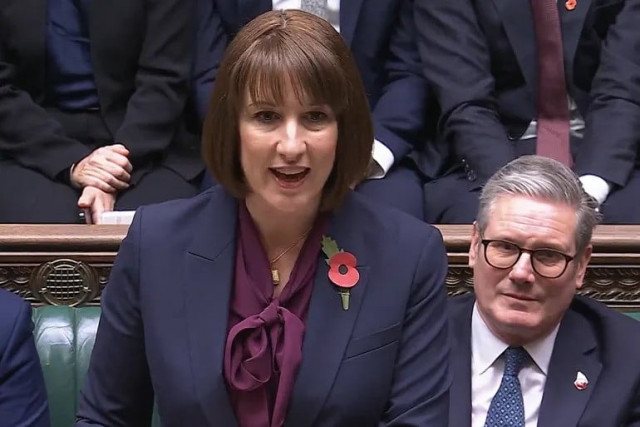UK's Labour govt raises taxes by £40b to fund NHS, stabilise economy
Move attributed to economic 'black hole' left by the Conservative govt

UK Chancellor of the Exchequer Rachel Reeves announced a £40 billion tax increase on Monday to address the country’s public finance deficit and boost funding for essential services, marking the Labour Party’s first budget since it returned to power this year.
In a wide-ranging budget statement, Reeves committed an additional £25 billion to the National Health Service (NHS), aiming to reduce record-high waiting lists exacerbated by the Covid-19 pandemic.
“The choices that I have made today are the right choices for our country,” she said. “To restore stability to our public finances. To protect working people. To fix our NHS. And to rebuild Britain.”
Reeves attributed the need for a substantial tax rise to the economic “black hole” left by the previous Conservative government. Labour, elected on July 4 after 14 years in opposition, had pledged to end political turmoil and promote economic growth.
Key revenue-raising measures include a 1.2 percentage point increase in employer social security contributions, raising the rate to 15% from April, with the threshold for payments lowered. This adjustment is expected to generate £25 billion annually over five years.
Despite the tax hikes, Reeves ruled out increasing basic or higher income tax rates until at least 2028-29, while extending a freeze on fuel duty and reducing a tax on draught beer served in pubs.
The chancellor also introduced changes to capital gains and inheritance taxes, affecting private equity managers and non-domiciled residents, in line with Prime Minister Keir Starmer’s commitment that “those with the broadest shoulders” should pay more.
However, business leaders have expressed concern that rising costs from higher employer taxes, new worker protections, and an increased minimum wage could impact Labour’s goal to make the UK the fastest-growing economy in the G7.
Reeves, emphasising fiscal responsibility, assured lawmakers that the government would avoid excessive borrowing, mindful of previous market reactions to unfunded Conservative tax cut plans.



















COMMENTS
Comments are moderated and generally will be posted if they are on-topic and not abusive.
For more information, please see our Comments FAQ